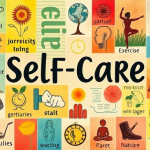
Summer Self-Care: How to Protect Your Skin and Energy Levels in the Heat
Signs of Sun Damage on Your Skin

Prolonged exposure to the sun’s harmful UV rays can result in various signs of sun damage on your skin. One common indication of sun damage is the development of sunspots, also known as age spots, which are characterized by darker pigmentation on the skin. These spots usually appear on areas exposed to the sun, such as the face, hands, and shoulders. Additionally, sun damage can cause the skin to become more prone to wrinkles and fine lines, leading to premature aging.
Another sign of sun damage is the occurrence of redness and inflammation on the skin, commonly known as sunburn. Sunburn happens when the skin is overexposed to UV radiation, causing irritation, pain, and peeling. It is crucial to protect your skin from the sun’s harmful effects by using sunscreen, wearing protective clothing, and seeking shade to prevent long-term damage and maintain skin health.
Importance of Hydrating Your Body in the Heat

Staying hydrated is crucial, especially during the hot summer months. Dehydration can lead to a range of health issues, including fatigue, headaches, and dizziness. When your body is dehydrated, it struggles to regulate its temperature, making it harder to stay cool in the heat. This can leave you feeling sluggish and drained of energy.
In addition to drinking plenty of water, consuming hydrating foods such as fruits and vegetables can also help maintain your body’s fluid balance. These foods are not only refreshing but also provide essential vitamins and minerals that support overall health. Remember to listen to your body and drink water regularly throughout the day, even if you don’t feel thirsty. By keeping yourself adequately hydrated, you can feel more energized and better equipped to handle the summer heat.
Choosing the Right Sunscreen for Your Skin Type

When it comes to choosing the right sunscreen for your skin type, there are a few key factors to consider. Firstly, identify your skin type – whether it’s oily, dry, combination, or sensitive. This will help you narrow down your options and select a sunscreen that suits your specific needs. For oily skin, opt for oil-free or gel-based sunscreens to prevent clogged pores. Dry skin types may benefit from a sunscreen with added moisturizing properties to prevent further dryness.
Additionally, consider the SPF (sun protection factor) of the sunscreen based on your skin’s sensitivity to sun exposure. Those with fair skin or a history of sunburns may require a higher SPF for better protection. It’s also crucial to choose a broad-spectrum sunscreen that protects against both UVA and UVB rays to shield your skin from harmful sun damage. By understanding your skin type and SPF needs, you can make an informed decision on the most suitable sunscreen to keep your skin safe and healthy under the sun.
Tips for Protecting Your Skin from Harmful UV Rays

When it comes to protecting your skin from harmful UV rays, one of the most important tips is to always wear sunscreen with a high SPF. Make sure to apply it generously and reapply every two hours, especially if you’re swimming or sweating. Seeking shade during peak sun hours, usually between 10 a.m. and 4 p.m., can also help reduce your exposure to harmful UV rays.
In addition to sunscreen, wearing protective clothing such as hats, sunglasses, and long sleeves can provide an extra layer of defense against the sun’s damaging effects. Remember to cover exposed areas like the face, neck, and hands. And don’t forget about your lips – using a lip balm with SPF can help protect this delicate skin from sun damage as well.
How to Stay Cool and Comfortable in the Summer Heat

During the hot summer months, staying cool and comfortable is essential for your overall well-being. One effective way to beat the heat is by staying hydrated. Make sure to drink plenty of water throughout the day to keep your body temperature regulated and prevent dehydration. Additionally, wearing loose, breathable clothing made of natural fibers can help you stay cool and prevent overheating.
Seek out shady areas or create your own shade with a wide-brimmed hat or umbrella when spending time outdoors. Avoiding direct exposure to the sun during peak hours can help you stay cool and reduce the risk of overheating. Planning outdoor activities for the early morning or evening when temperatures are milder can also help you stay comfortable in the summer heat.
Benefits of Eating Foods That Help Hydrate Your Skin

Hydration is key to maintaining healthy, glowing skin during the summer months. While drinking water is essential, it’s also important to consume foods that are rich in water content. Fruits like watermelon, oranges, and strawberries are not only delicious but also excellent sources of hydration for your skin. These fruits are packed with vitamins and antioxidants that help keep your skin supple and moisturized from within.
In addition to fruits, vegetables like cucumbers, celery, and lettuce can also contribute to your skin’s hydration levels. These veggies have high water content and are perfect for adding to salads or snacking on throughout the day. By incorporating these hydrating foods into your diet, you can support your skin’s natural moisture barrier and promote a healthy complexion all summer long.
Importance of Wearing Protective Clothing in the Sun

Protective clothing plays a crucial role in shielding your skin from the harmful effects of the sun’s UV rays. In addition to sunscreen, wearing protective clothing such as long sleeves, hats, and sunglasses can provide an extra layer of defense against sun damage. Clothing with a tight weave and dark colors tend to offer better protection against UV radiation, helping to reduce the risk of sunburn and skin cancer.
Opting for clothing made from UPF (Ultraviolet Protection Factor) fabrics can also enhance your sun protection. UPF clothing is specifically designed to block UV rays, providing added security for your skin during outdoor activities. By incorporating protective clothing into your sun safety routine, you can further minimize the negative impact of sun exposure on your skin, ensuring that you enjoy the summer season while safeguarding your skin’s health.
How to Avoid Heat Exhaustion and Stay Energized

Heat exhaustion can occur when the body overheats due to prolonged exposure to high temperatures and insufficient fluid intake. Symptoms include excessive sweating, weakness, headache, dizziness, and nausea. To avoid heat exhaustion, it is crucial to stay hydrated by drinking plenty of water throughout the day and avoiding dehydrating beverages like alcohol and caffeinated drinks.
In addition to staying hydrated, it’s important to take breaks in shaded or air-conditioned areas, especially during the hottest hours of the day. Wearing lightweight, loose-fitting clothing and a wide-brimmed hat can also help to prevent overheating. If you start to experience symptoms of heat exhaustion, such as feeling weak or dizzy, it’s essential to rest in a cool place, drink water, and cool your body by applying cold compresses or taking a cool shower. Taking these preventive measures can help you stay energized and avoid the risks associated with heat exhaustion.
Creating a Relaxing Summer Self-Care Routine

During the hot summer months, it’s essential to prioritize self-care to keep yourself feeling refreshed and rejuvenated. Start your routine by incorporating calming activities such as meditation or a leisurely walk in nature to soothe your mind and body. Setting aside time for yourself each day, even if it’s just a few minutes, can make a significant difference in how you feel throughout the season.
In addition to mental relaxation, physical self-care is just as important. Treat yourself to a hydrating facial mask or a cool bath to nourish your skin and combat the effects of sun exposure. Don’t forget to stay hydrated by sipping on water throughout the day and fueling your body with fresh fruits and vegetables to keep your energy levels up. Making these small self-care practices a part of your daily routine can help you feel your best and fully enjoy the summer months.
The Effects of Dehydration on Your Energy Levels

Dehydration can have a significant impact on your energy levels, causing feelings of fatigue and sluggishness. When your body lacks proper hydration, essential bodily functions may become compromised, leading to a decrease in energy. This can make it challenging to stay alert and focused throughout the day.
Furthermore, dehydration can also affect your physical performance during exercise or daily activities. Without enough fluids, your muscles may experience cramping and decreased endurance, making it harder to engage in physical tasks. It is crucial to prioritize hydration by drinking an adequate amount of water each day to maintain optimal energy levels and overall well-being.
Why Proper Sleep is Essential for Skin and Energy Health

Adequate sleep is crucial for maintaining healthy skin and optimal energy levels. During sleep, the body goes into repair mode, allowing skin cells to regenerate and repair damage caused by environmental factors like sun exposure and pollution. Lack of sleep can lead to increased levels of cortisol, a stress hormone that can break down collagen, resulting in dull and tired-looking skin. Additionally, when we don’t get enough rest, our energy levels suffer, making us more prone to fatigue and decreased productivity.
Moreover, quality sleep is essential for proper hormone regulation, including those that impact skin health and energy levels. Growth hormone, which is crucial for repairing and maintaining skin cells, is primarily released during deep sleep stages. Inadequate sleep disrupts this process, leading to a slower cellular turnover rate and potentially contributing to premature aging. Furthermore, sleep plays a vital role in regulating appetite-controlling hormones, which can affect energy levels and overall well-being. Prioritizing restful sleep is a foundational aspect of a healthy lifestyle that supports both skin health and sustained energy throughout the day.
Incorporating Exercise Into Your Summer Self-Care Routine

Exercise is a crucial component of a holistic self-care routine, especially during the summer months when staying active can feel particularly refreshing. Engaging in physical activities not only helps in maintaining a healthy weight and toning muscles but also boosts mood and overall well-being. Whether it’s a morning jog, a swim in the pool, or a group yoga session at the park, finding an exercise that you enjoy can make it easier to commit to regular workouts.
Incorporating exercise into your summer self-care routine can also enhance your skin health by improving blood circulation and promoting detoxification through sweat. As you sweat during physical activity, your pores open up and release trapped dirt, oil, and toxins, giving your skin a natural cleanse. Additionally, the increased blood flow delivers essential nutrients and oxygen to the skin cells, aiding in a radiant and healthy complexion. So, remember to lace up those sneakers and embrace the summer sun while you break a sweat for the benefit of your skin and overall wellness.
The Role of Antioxidants in Protecting Your Skin from Sun Damage

Antioxidants play a crucial role in protecting the skin from sun damage by neutralizing free radicals that are generated by UV exposure. These free radicals can lead to oxidative stress, which damages the skin cells and accelerates the aging process. By incorporating antioxidants into your skincare routine, you can help combat the harmful effects of sun exposure and maintain healthier, more youthful-looking skin.
Some common antioxidants that are beneficial for protecting the skin from sun damage include vitamin C, vitamin E, and green tea extract. These antioxidants work together to fight free radicals, reduce inflammation, and repair skin damage caused by UV rays. By incorporating products containing these antioxidants into your skincare regimen, you can enhance your skin’s natural defense mechanisms and minimize the negative impact of sun exposure on your skin.
How Stress Can Affect Your Skin and Energy Levels

Stress is a common factor that can significantly impact both your skin and energy levels. When you experience high levels of stress, your body releases cortisol, a hormone that can lead to increased oil production in the skin. This excess oil can clog pores and contribute to breakouts, making your skin more prone to acne and other skin issues.
Moreover, stress can also disrupt your sleep patterns, leading to fatigue and low energy levels during the day. Lack of quality sleep can affect your body’s ability to repair and regenerate cells, including those in your skin. This can result in dull, tired-looking skin and exacerbate existing skin conditions. Managing stress through various relaxation techniques and self-care practices is crucial in maintaining healthy skin and high energy levels.
Importance of Regularly Checking Your Skin for Changes

Regularly checking your skin for changes is crucial in maintaining its health and preventing potential issues. By staying vigilant and observing any new moles, blemishes, or changes in existing spots, you can catch any abnormalities early on. This can lead to timely intervention and treatment if needed, reducing the risks of skin conditions developing into more serious concerns.
Early detection is key when it comes to skin health, as many skin cancers and conditions are highly treatable when identified in their initial stages. By incorporating skin checks into your routine, you empower yourself to take charge of your health and well-being. Remember, any persistent changes or unusual growths should be promptly brought to the attention of a healthcare professional for further evaluation.
• Regularly checking your skin for changes is crucial in maintaining its health and preventing potential issues.
• By staying vigilant and observing any new moles, blemishes, or changes in existing spots, you can catch any abnormalities early on.
• This can lead to timely intervention and treatment if needed, reducing the risks of skin conditions developing into more serious concerns.
Early detection is key when it comes to skin health, as many skin cancers and conditions are highly treatable when identified in their initial stages.
By incorporating skin checks into your routine, you empower yourself to take charge of your health and well-being.
Remember, any persistent changes or unusual growths should be promptly brought to the attention of a healthcare professional for further evaluation.
Natural Remedies for Sunburn Relief

Natural remedies can offer relief for sunburned skin, soothing the discomfort and aiding in the healing process. Aloe vera is a popular choice due to its anti-inflammatory properties and ability to cool and moisturize the skin. Applying aloe vera gel directly from the plant or a trusted store-bought product can help reduce redness and promote healing.
Another natural remedy for sunburn relief is oatmeal. Oatmeal has soothing properties that can alleviate itching and inflammation caused by sunburn. Taking an oatmeal bath or creating a paste with ground oatmeal and water to apply on the affected areas can provide relief and comfort to sun-damaged skin.
The Connection Between Mental Health and Skin Health

Mental health and skin health are intricately linked, with one often reflecting the other. Stress, anxiety, and depression can manifest physically on the skin in the form of acne, rashes, or eczema. When mental health is neglected, it can exacerbate existing skin conditions and even lead to new ones.
Conversely, taking care of your mental well-being can have a positive impact on your skin. Engaging in stress-reducing activities such as yoga, meditation, or spending time in nature can help improve skin conditions and promote a healthy glow. Prioritizing self-care and seeking support when needed can contribute to overall well-being, benefiting both mental health and skin health simultaneously.
How to Balance Work and Leisure Time in the Summer

As the summer season approaches, finding a balance between work responsibilities and leisure activities becomes increasingly important. With longer daylight hours and warmer weather enticing you to spend more time outdoors, it’s crucial to manage your time effectively to ensure both work obligations and personal relaxation are adequately addressed. One effective strategy is to establish clear boundaries between work and leisure time, setting specific hours for work and reserving evenings and weekends for activities that bring you joy and relaxation.
In addition to setting boundaries, making use of time management techniques can help you optimize your schedule during the summer months. Prioritize tasks based on urgency and importance, allowing yourself to focus on work during designated hours and fully immerse yourself in leisure activities when the workday is over. By creating a structured routine that incorporates both work and leisure time, you can maintain productivity in your professional life while still making time for self-care and enjoyment during the summer season.
Tips for Rejuvenating Your Skin After a Day in the Sun

After spending a day under the blazing sun, your skin may need some extra care to rejuvenate and recover. One effective way to soothe sun-exposed skin is by applying aloe vera gel or a moisturizer with cooling ingredients like cucumber or chamomile. These products can help hydrate your skin, reduce inflammation, and provide a refreshing sensation.
Another tip for rejuvenating your skin post-sun exposure is to take a cool shower to help lower your body temperature and calm any potential sunburn. Opt for gentle cleansers and avoid hot water, as it can further dry out your skin. After showering, gently pat your skin dry with a soft towel and avoid rubbing, which can irritate sun-damaged skin. Applying a rich, hydrating moisturizer while your skin is still slightly damp can help lock in moisture and promote healing.
The Benefits of Seeking Professional Help for Skin Concerns

Seeking professional help for skin concerns can provide you with personalized guidance and treatment options tailored to your specific needs. Dermatologists have the expertise to diagnose various skin conditions accurately and recommend the most effective solutions to address them. By consulting with a skincare specialist, you can receive professional advice on how to maintain healthy skin, prevent future issues, and achieve optimal skin health.
Additionally, visiting a skincare professional can help you access advanced treatments and technologies that may not be readily available over the counter. From specialized facials to laser therapies, dermatologists offer a range of services that can target specific skin concerns and provide long-lasting results. By entrusting your skin care needs to a qualified professional, you can benefit from their extensive knowledge and experience in managing a wide range of dermatological issues.











